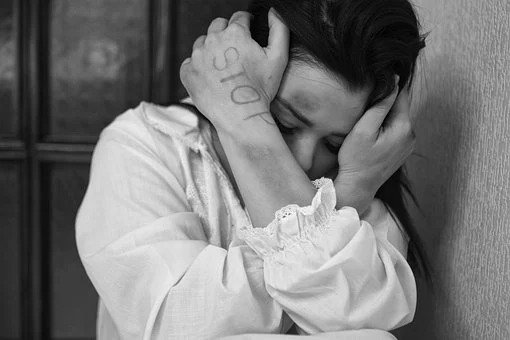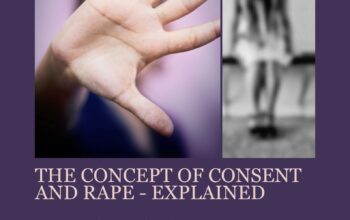This article has been written by Apurva Kamboj. Apurva is a practising advocate in the District Courts of Karnal, Haryana.
One of the biggest social evils in today’s era is offences against women. It is not only something that is frowned upon but is very much a crime.
But is it something that has developed recently? The answer is No. Women across the world have been victims of violence since the longest possible time.
Violence against women not only takes place on the streets or on professional adventures but often within the family behind closed doors. It is a crime often concealed, unreported and even unacknowledged.
According to the World Heath Organisation, latest global figures indicate that about 1 in 3 of women worldwide have experienced either physical or sexual intimate partner violence or non-partner sexual violence in their lifetime. Violence against women tend to increase during every type of emergency, including epidemics. Reports from China, the United Kingdom, the United States and other countries suggest an increase in domestic violence cases since the COVID-19 outbreak.

Protection of women from domestic violence in India
The Protection of Women from Domestic Violence Act was enacted in 2005 to provide protection to women from domestic violence. It is highly important for women to be aware of the available recourse in cases of domestic violence.
Who can claim protection under this Act?
Any person or the victim can approach the appropriate authority to complain about domestic violence. When a person reports a domestic violence case in good faith that person cannot be held liable for anything. The victim can be:
- Wife, even if the marriage was legally invalid
- Mother
- Sister
- Daughter including adopted daughter
- Female live-in partner
- Widow
What constitutes domestic violence?
– Physical abuse
– Sexual abuse
– Verbal and emotional abuse
– Economic abuse
Whom to approach to report a domestic violence case?
Any person or the victim herself can approach the following to report domestic violence against her :
- Protection officer
Every district has protection officer appointed by the State Government who is generally and preferably a woman.
- Service provider
These are voluntary associations registered with the objective of protecting rights and interests of women. They aid in filing complaints or provide shelter to the victim.
- Police officer
- Magistrate
Judicial magistrate 1st class or Metropolitan Magistrate.
Against whom domestic violence can be reported?
A complaint of domestic violence can be against:
- Husband or relative of husband
- Male live-in-partner or his relative
- Father
- Brother
- Son
It is necessary that the victim must be or have been in domestic relationship with the respondent. In simple words, they must be living or have lived as husband wife or by way of adoption or as a joint family.
Relief available to the victim
- Monetary relief
The victim may seek the expenses occurred or any loss suffered as a result of domestic violence and the Magistrate may grant the same upon hearing the application by victim. For example – loss of earnings, medical-expenses, expenses related to property, maintenance etc. If, monetary relief is not paid to the victim it can be deducted from the source of income of the respondent i.e the person against whom the complaint is made.
- Custody
The victim can get temporary custody of her children. Though the husband may get to visit the children under certain specifications. But if it is proved that the visit may be harmful to the interest of children and the Magistrate is of the same opinion, then he cannot visit them.
- Residence
The victim can get to reside in the house where they lived. She has a right to reside in that house. The house must be owned or tenanted by either of them singly or jointly. In case of joint family, it does not matter whether the victim or respondent has a title to the property or not. The victim cannot be removed from that property and if, necessary the person against whom a complaint is made, might be removed from that residence except when it is a woman. He and his relatives can be directed not to enter the residence. The victim may be secured to any other residence and the respondent may be directed to pay the rent. The victim may get protection from the officer-in-charge of the police station of that jurisdiction if the Magistrate orders.
- Compensation
The victim can get other compensation and damages from respondent for any mental torture or emotional stress caused as a result of domestic violence.
- Protection
The victim can get protection so that the respondent does not commit domestic violence, enter her place of employment, sale any property or operate bank accounts, try to communicate with her, harm any of her relatives or any other act mentioned in the protection order.
- Punishment
If the respondent violates the order by the Magistrate he/she may be sent to prison for a duration of one year.
- Duration of case
The first court hearing must be within three days of complaint made to the court. The Magistrate must dispose the case within sixty days of first hearing.
- Right to appeal
The victim or respondent may appeal to the Court of Session within 30 Days from the date on which order is served.
- Free legal aid
The victim can ask for free legal aid.
- Criminal complaint
The victim has a right to file a criminal complaint under Section 498A of Indian Penal Code which lays down punishment of 3 years imprisonment and fine.
Effect of legislation
It is believed that the law in spirit has not been implemented. Many have claimed that the law is flawed and leads to false domestic-violence reports. Another view is that still many women are unaware of their rights and are a victim of domestic violence. This calls for making women aware of the protection provided to them mainly in rural areas. Men’s associations claim that the law must be gender neutral. But it is also a fact that generally women are victims of domestic violence.



